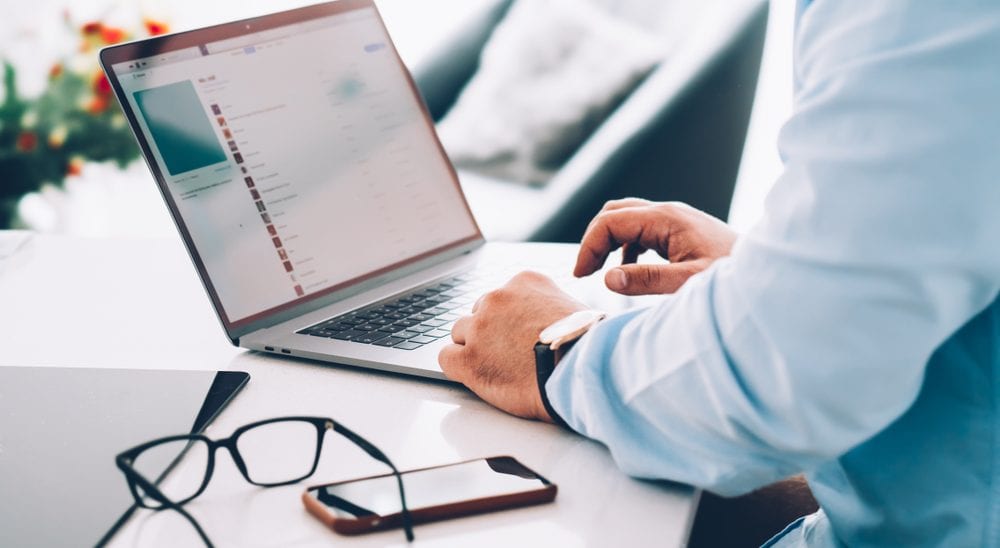Advice from RingCentral: How to stay secure when working remotely

Curtis Peterson, SVP Operations at RingCentral has shared his insights for businesses and individuals to stay secure during the lockdown.
The coronavirus pandemic has upended our lives, and for many businesses, has resulted in a mass migration to remote working. While for some remote working is not a new concept—almost 70% of people work remotely at least once a week—we have never before witnessed remote working on such a scale. It is both unexpected and unprecedented.
The pandemic has forced businesses to adopt communications and collaboration tools to enable employees to interact and work productively in their homes. In fact, the demand for video conferencing apps surged in March by 90% from the pre-pandemic weekly download average. The shift to remote working won’t be short-lived, either—having much of the workforce working remotely is likely to be considered the new normal.
With entire businesses operating remotely, and doing so for the foreseeable future, it’s important to know the best practices for staying secure, especially when using new collaboration and communications tools. Security risks remain a concern for businesses; hackers are taking advantage of the pandemic to increase cyberattacks. Are there is a right to air concern. Not only is there a heightened risk as some employees use both personal and professional devices, but employees are also using new applications to do their jobs, which naturally brings risks.

So how do businesses ensure they aren’t at risk and keep their employees safe?
Practicing the security basics
We all know the importance of passwords; but we also know how easy it is to fall into bad habits, like using basic passwords, or re-using passwords across accounts. But employees should be following best practices and using a new password for every virtual meeting—especially with more sensitive information being shared online. Reusing a meeting invitation without a unique password makes employees vulnerable, and hackers will take advantage of this. Keeping meetings password-protected is critical to maintaining privacy, and ensures businesses stay safe against the hackers.
Along with passwords, there are other good security habits employees should be practicing; in fact, employees should be practicing the same security processes they would in the office. This means employees should be locking their workstations when they move away from their laptop or desktop. They should also keep their passwords hidden; especially to avoid the embarrassment of a colleague or customer seeing their password on a Post-It note while on a video call. And it’s still a good idea to use physical lens covers or security slides on cameras.
Finally, employees should also only be using company-approved collaboration tools. To ensure employees are sticking to this, IT teams must make it clear that staff cannot download new software or use new online tools without company approval.
Read More: RingCentral: Unifying communications and empowering enterprises
Social engineering, gaining access to passwords by creating a false sense of trust, is still the largest overlooked security risk for companies. The pandemic is exaggerating this, according to Google, incidents have increased 350% during the outbreak. Reminding employees to be aware of this tactic can prevent expensive attacks.
Mirroring the office in the home
With remote working, the lines between work and home can easily be blurred. Working from home requires a change in routine, and it is crucial employees ensure cybersecurity is part of that new routine.
Making sure the day is structured properly can help ensure employees are taking security as seriously as it would be in the office. Creating routine signals the mind that we are “at work” and reminds us to behave as such including protecting data.
But employees will also now have new “colleagues” in their workspace, their families, their partners, or their housemates. It’s important to set rules with the people with whom they are sharing a remote workspace. It’s a good idea for employees to have dedicated workspaces in their home, especially to use video, so that others don’t accidentally interfere or become online when they don’t expect to.
For employees who don’t have enough space in their home for a dedicated office there are other tools available such as using headsets, to ensure that company information stays confidential, especially if other adults might work for competing, or semi-competing companies. This not only improves comfort when sharing spaces but ensures that confidential information is only heard by the intended recipient.
Security hacks can spread as easily as human viruses
Just like we are taking precautions not to interact with people infected with the Coronavirus, we must also take precautions to avoid interacting with infected content, malicious links, or malware. Employees are the number one way that attackers gain access to company networks. We need to make certain that even though we are working in our lounge clothes, we don’t become so comfortable we forget to protect our data and our privacy. With this in mind, it’s imperative for businesses to implement simple yet effective security practices to ensure employees are working both securely and productively. Businesses have a responsibility to communicate good security practices to their employees. This will bring some normality to the current situation, but will also help employees understand how to best protect themselves, so everyone can work just as efficiently as when physically together in the office.